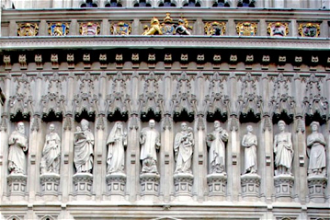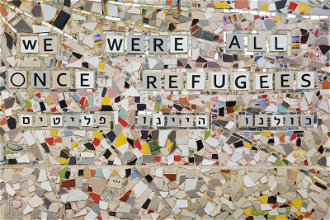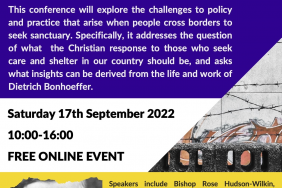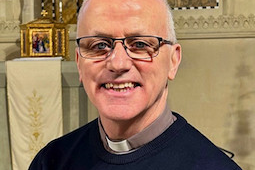Bonhoeffer
If one were asked who is the best known German who resisted Hitler and Nazism, the answer would probably be Dietrich Bonhoeffer. He is respected as a theologian, admired as a pacifist, questioned as complicit in the assassination attempt on Hitler and revered as a martyr.
This film is an absorbing documentary on Bonhoeffer, using the voice of Klaus Maria Brandauer (Mephisto, Out of Africa). Director Martin Doblmeier's research has led to substantial archival material from the 1930s and 1940s being incorporated into a work which is both biography and study. We are taken through the details of Bonhoeffer's life through photos, narration and commentary. We are also taken through the political and religious history of Germany from World War I to the end of World War II, a momentous thirty years. The background of Germany which led to the rise of National Socialism and the emergence of Hitler as chancellor is well-known but seen in connection with a man who was opposing the regime on humane and evangelical grounds means that we look at the history with a more critical eye.
It should be mentioned that Bonhoeffer travelled overseas, lecturing in the United States, so was able to look at what was happening in Germany from the outside as well as the inside.
The German churches were slow to criticise Hitler. The Catholic church hoped that he would allow some freedom. The Lutherans and evangelical churches focussed on the German experience and its needs and were hopeful because of Hitler's initial promises.
Bonhoeffer's Gospel spirituality is one of the main focal points of the film. He thought that traditional preaching on the Sermon on the Mount made us more aware of how sinful we are and, therefore, we are unable to live up to the ideals, whereas the message of Jesus in the Sermon is that we are meant to live it fully. But, Bonhoeffer had great faith in the church. It was the physical manifestation of Christ in the world - and it existed only when it existed for others. Bonhoeffer's question was not whether the Church would be free but, rather, would the church stand by the victims of Nazism. This kind of thinking led to his pacifist stances.
Taking the Sermon on the Mount seriously means that the key to spirituality is discipleship. Bonhoeffer explained that without the cross there was only 'cheap grace'. The Gospel highlights the Cross in our lives. This is 'costly grace'. In writing his ethics, he focused not on rules but rather the situations in which the will of God is concealed among the possibilities for action. Choices require faith.
Bonhoeffer supported the Jews in the persecution that led to Holocaust. His response to the oppression by Hitler led his interpreting his pacifist views as resistance. Finally, he came down on the side of the attempt to be rid of persecution by supporting the plot against Hitler. Imprisoned, he was humiliated and shamed in jail and finally hanged.
Bonhoeffer was a man who saw the 20th century at its worst and saw it within his own culture and religion - and chose costly grace.
LONDON - 20 September 2005 - 530 words





















